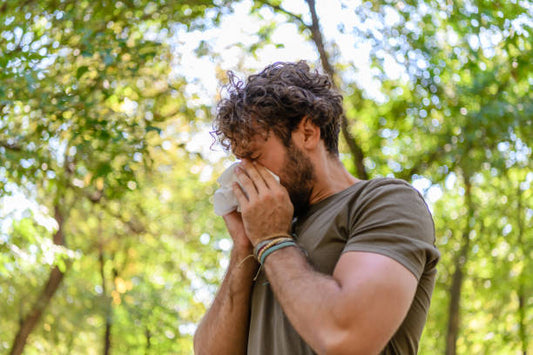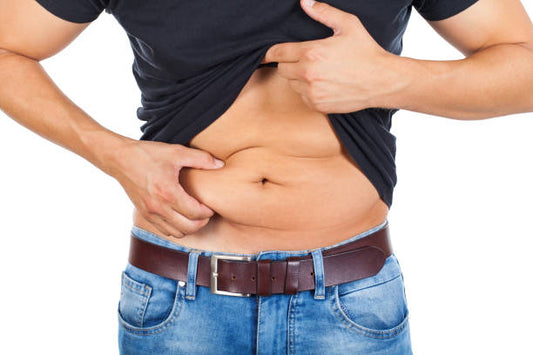Menopause is a natural change that occurs in a woman's life when the ovaries cease releasing eggs and the production of hormones like estrogen declines. This hormonal shift might result in a range of symptoms, such as:
A hot flash is a quick sensation of great heat that spreads throughout the body and is frequently accompanied by sweating and a rapid heartbeat.
Similar to heat flashes, night sweats are unexpected, sleep-disrupting episodes of perspiration that can occur at night.
Hormonal fluctuations during menopause can induce alterations in mood, including impatience, anxiety, and depression.
Menopause can also cause trouble getting asleep or staying asleep, resulting in weariness and diminished energy.
There are conventional therapies for menopause symptoms, such as hormone replacement therapy (HRT), but some women choose to employ natural medicines, such as Bacopa. Bacopa, also known as Brahmi, is a herb that has been used for millennia in traditional Ayurvedic medicine and is considered to offer numerous health advantages, including the potential to alleviate menopause symptoms. However, evidence for its efficacy in treating menopause symptoms is limited, and further study is required to completely comprehend its effects.
History
Bacopa, also known as Brahmi, has a long history of usage in Ayurvedic medicine. Ayurveda is a comprehensive medical system that began in India more than three thousand years ago and is still extensively practiced today. Bacopa is regarded a rasayana, or a herb that improves overall health and longevity, in Ayurveda.
Bacopa has been utilized in Ayurvedic medicine for a variety of objectives, including to improve memory and cognitive function, to alleviate stress and anxiety, and to treat a variety of neurological and mental health disorders. Its usage as a natural cure for menopause symptoms is more recent, and there is limited evidence that it is beneficial at treating these symptoms.
Bacopa has just lately achieved popularity in Western medicine, despite its long history of usage in traditional medicine; additional research is required to properly comprehend its effects and find the most beneficial amounts. Bacopa is usually considered safe when used as intended, and millions of people have used it for centuries with no reports of major negative effects.
How it works
The precise processes via which Bacopa may alleviate menopausal symptoms are not well understood. However, there are other hypotheses regarding how Bacopa may reduce these symptoms:
- Bacopa is believed to have a regulating influence on hormones, which may assist to alleviate menopausal symptoms such as hot flashes and night sweats resulting from hormonal imbalances.
- Bacopa is known to have a relaxing impact on the mind and body, and it may help to reduce stress and anxiety, both of which can exacerbate menopause symptoms.
- Bacopa contains a high concentration of antioxidants, which protect cells from harm caused by free radicals. Antioxidants may also aid in reducing inflammation, which has been related to a number of health issues, such as menopausal flashes and mood swings.
It is important to highlight that the evidence for Bacopa's efficacy in treating menopause symptoms is limited, and additional research is required to completely comprehend its mechanisms of action. In addition, while Bacopa is usually regarded as safe, it may interfere with some drugs; therefore, it is essential to consult a healthcare expert before using Bacopa or any other natural therapy to treat menopause symptoms.
Studies and Results
There is insufficient evidence on the efficacy of Bacopa in treating menopause symptoms, and the majority of studies conducted to far have been small and poorly structured. The data regarding Bacopa's usefulness in treating menopausal symptoms is, therefore, equivocal.
In a research involving 60 postmenopausal women, using a Bacopa extract for 12 weeks reduced the incidence and intensity of hot flashes in comparison to a placebo. Nonetheless, this trial was small and poorly controlled, so additional research is required to validate these results.
In a second trial involving 40 postmenopausal women, it was discovered that a Bacopa extract reduced anxiety and depression when compared to a placebo when taken for eight weeks. However, the effects of Bacopa on hot flashes and night sweats were not evaluated in this trial, and the results should be regarded with caution due to the small sample size and lack of a well-controlled design.
The appropriate dose of Bacopa for the treatment of menopausal symptoms has not been determined. In the aforementioned investigations, dosages ranged from 300 to 450 mg per day. Before taking Bacopa or any other natural medicine, it is essential to consult a healthcare practitioner, as different formulations and dosages may have varying effects. Additionally, some individuals may be more susceptible to Bacopa and may develop adverse effects at lower dosages; therefore, it is essential to begin with a low dose and gradually raise it as tolerated.
Recommended Dosage
Common daily doses of Bacopa range from 300 to 450 milligrams (mg) in divided doses, depending on the product and the individual's requirements. Before beginning a new supplement regimen, it is always advisable to consult a health care professional.
Conclusion
Bacopa, a herb commonly used in Ayurvedic medicine, has been shown to have the potential to reduce menopause symptoms, such as anxiety, depression, and hot flashes. However, additional research is required to fully comprehend its efficacy and safety for this application.
References
- "Bacopa monnieri" (PDF). World Health Organization. 2002.
- Mahdi, A. A., Alkharfy, K. M., & Alqahtani, M. H. (2015). Bacopa monnieri: A possible neuroprotective agent for neurological and psychiatric disorders. BioMed Research International, 2015, 1-11.
- Choudhary, D., Bhatnagar, M., & Bhatnagar, R. (2012). An overview on Bacopa monnieri: Chemical constituents, traditional use, phytopharmacology and toxicology. Journal of ethnopharmacology, 140(2), 291-304.




